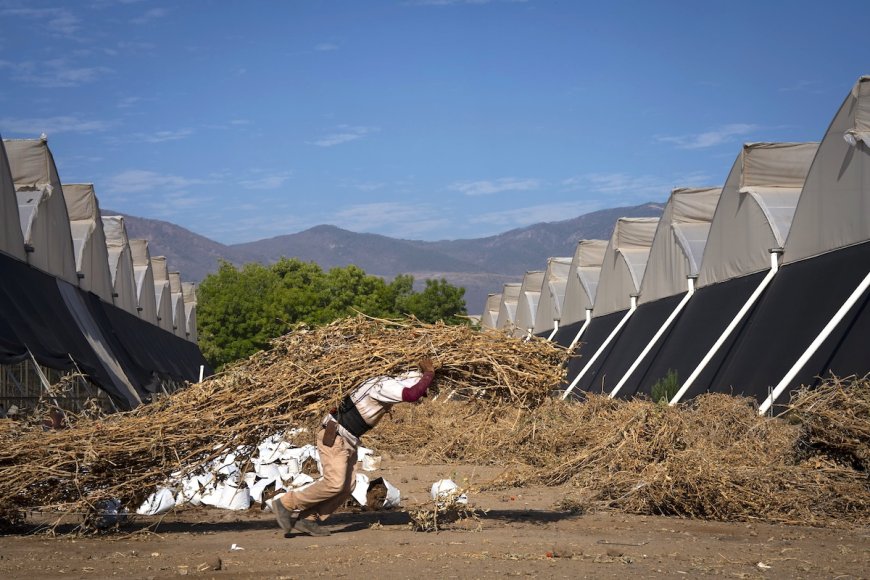75% of Heat-Related Deaths in Mexico Occur in People Under 35, Study Finds
A new study has found that 75 percent of heat-related deaths in Mexico occur among people under the age of 35, rather than in older people, as might be expected. Of these younger people, a large percentage were from 18 to 35 — an age range that might be perceived to be the most able […] The post 75% of Heat-Related Deaths in Mexico Occur in People Under 35, Study Finds appeared first on EcoWatch.

A new study has found that 75 percent of heat-related deaths in Mexico occur among people under the age of 35, rather than in older people, as might be expected.
Of these younger people, a large percentage were from 18 to 35 — an age range that might be perceived to be the most able to tolerate heat.
“It’s a surprise. These are physiologically the most robust people in the population,” said Jeffrey Shrader, co-author of the study and a researcher at Columbia Climate School affiliate the Center for Environmental Economics and Policy, in a press release from Columbia Climate School. “I would love to know why this is so.”
Mexico was chosen for the study since it collects detailed geographical data on daily temperatures and mortality. The research team correlated excess mortality — the number of below- or above-average deaths — with temperatures on the “wet-bulb scale.” The wet-bulb scale is a measurement of the heightened effects of heat combined with humidity.
The study estimated that there will be a 32 percent increase in heat deaths this century for people under 35 if we don’t drastically lower greenhouse gas emissions, reported The Guardian.
“Most discussion of vulnerability to heat focuses on the elderly, but we found a surprising source of inequality in that most heat mortality is in younger people,” said co-lead author of the study Andrew Wilson, a Ph.D. candidate in sustainable development at Columbia, as The Guardian reported. “We didn’t think we’d find this.”
The study, “Heat disproportionately kills young people: Evidence from wet-bulb temperature in Mexico,” was published in the journal Science Advances.
The researchers found that between 1998 and 2019, about 3,300 people died annually from exposure to heat in Mexico. Nearly a third of these were people from 18 to 35, “a figure far out of proportion with the numbers in that age bracket,” the press release said.
Children under the age of five — especially infants — were also found to be highly vulnerable. The least number of heat-related deaths occurred in people from 50 to 70.
Co-lead author of the study R. Daniel Bressler, also a Ph.D. candidate in the sustainable development program at Columbia, said that, based on the findings, “we project, as the climate warms, heat-related deaths are going to go up, and the young will suffer the most.”
The researchers said several factors may be contributing to the surprising findings. Younger adults more frequently engage in outdoor labor like construction and farming, thus becoming exposed to heat stroke and dehydration. The same applies to indoor manufacturing in places without air conditioning.

“These are the more junior people, low on the totem pole, who probably do the lion’s share of hard work, with inflexible work arrangements,” Shrader said in the press release.
The researchers pointed out that young adults were also more likely to take part in strenuous outdoor sports.
Popular media often converts wet-bulb temperatures into “real-feel” heat indexes, which can vary based on the precise combination of humidity and heat.
The researchers found that a wet-bulb temperature of about 71 degrees Fahrenheit with a humidity of 40 percent was ideal for younger people. In this temperature range, individuals suffer minimum mortality.
By contrast, the researchers discovered that nearly all cold-related fatalities were of individuals older than 50. In most countries, including Mexico, most temperature-related deaths are currently due to cold weather.
“We are seeing that cold-related deaths will fall, primarily of older individuals, while heat deaths of younger individuals will increase,” Wilson said, as reported by The Guardian. “Climate change is here and how we adapt to it will be a very important determinant of human health in the future. We shouldn’t move resources away from older people but we certainly need to think more about the risk faced by younger people.”
The post 75% of Heat-Related Deaths in Mexico Occur in People Under 35, Study Finds appeared first on EcoWatch.
What's Your Reaction?








































